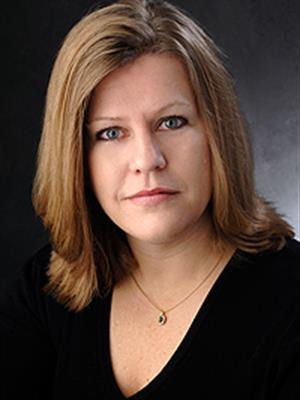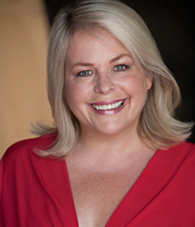Award Submission Information:
Call for Nominations for The Charles Atkin Award for Translational Health Communication Research Scholar Award, deadline February 1, 2025:
- The 7th Translational Health Communication Scholar Award will be presented at the conference to a scholar with a demonstrated record of research that has significantly contributed to practice and/or policy.
- A nomination should consist of a letter detailing why the nominee deserves the award, accompanied by the nominee’s CV.
- The winner is obligated to provide a presentation at the awards luncheon.
- Nominations for this award will be accepted until February 1, 2025, at: gkreps@gmu.edu.
Abstracts programmed in poster sessions are eligible for poster awards in three categories: Top Student, Top Early Career Scholar, and Top Overall. Abstracts accepted for panel presentations will be eligible for awards in those same categories, provided that complete papers are submitted by February 22nd . Specific instructions will be given at the time of acceptance.
CHARLES ATKIN TRANSLATIONAL SCHOLAR AWARD WINNER 2023:
 Mohan Dutta, the Dean’s Chair Professor of Communication and the founding Director of the active Center for Culture-Centered Approach to Research and Evaluation (CARE) at from Massey University in New Zealand has been selected to receive the 2023 Charles Atkin Translational Health Communication Scholar Award. Dr. Dutta has a long history of conducting important community-based health communication research and intervention studies to promote health equity. See this brief profile about Mohan and his important work: https://www.massey.ac.nz/massey/expertise/profile.cfm?stref=285450
Mohan Dutta, the Dean’s Chair Professor of Communication and the founding Director of the active Center for Culture-Centered Approach to Research and Evaluation (CARE) at from Massey University in New Zealand has been selected to receive the 2023 Charles Atkin Translational Health Communication Scholar Award. Dr. Dutta has a long history of conducting important community-based health communication research and intervention studies to promote health equity. See this brief profile about Mohan and his important work: https://www.massey.ac.nz/massey/expertise/profile.cfm?stref=285450His keynote address during the luncheon will be titled: Culture-centered approach to transforming structures that drive health inequities: Building voice infrastructures at the global margins.
2021 WINNER KAMI SILK
 The 2021 Charles Atkin Translational Health Communication Scholar Award is being given this year to Dr. Kami Silk!
The 2021 Charles Atkin Translational Health Communication Scholar Award is being given this year to Dr. Kami Silk!
The distinguished health communication scholar selected to receive the award this year is Dr. Kami Silk, the Rosenberg Professor of Communication and the Chair of the Department of Communication at the University of Delaware. Kami will receive this award in recognition for her outstanding long-term program of community-based health communication research and intervention work that addresses important health risks in society.
It is most fitting that Kami will receive the Atkin Award given her long history of working closely with Dr. Charles Atkin at Michigan State University on important projects that made significant contributions to society. Perhaps their most impressive collaborative work is a series of evidence-based health communication studies conducted as part of the innovative NIH-funded translational Breast Cancer and the Environment (BCERP) transdisciplinary and translational research program designed to help prevent the onset of breast cancer.
BIO:
Associate Dean of Research and Director of Master’s of Health and Risk Communications, Professor, Appointment with AgBioResearch
Kami Silk, (Ph.D., University of Georgia) was appointed as Rosenberg Professor and Chairperson of the Department of Communication at the University of Delaware in the Fall of 2018. She previously served as the Sr. Associate Dean for Research in the College of Communication Arts and Sciences and Professor in the Department of Communication and AgBioResearch at Michigan State University. Dr. Silk is a health communication researcher who investigates how to communicate effectively to promote positive health outcomes among the lay public. Her most recent work has focused on social norms and persuasive message design across the health issues of breast cancer risk reduction, suicide prevention, and improving nutritional practices among adolescent mothers for obesity reduction among infants. Her research has been published in the Journal of Health Communication, Health Communication, Social Science & Medicine, Journal of Nutrition Education & Behavior, and Health Promotion & Practice. Dr. Silk is a researcher with the Breast Cancer and Environment Research where she has served as the PI of three projects and as a Co-I of another project. Her BCERP work includes communication science research and outreach activities to educate girls, parents, and pediatric health care providers about the links between the environment and breast cancer.
DR. MICHELLE MILLER-DAY
We  are pleased to announce that Dr. Michelle Miller-Day has been selected (among a very competitive group of nominees) to receive the 2019 Charles Atkin Outstanding Translational Health Communication Scholar Award at the upcoming DC Health Communication (DCHC) conference to be held in Fairfax, Virginia at the beautiful Hyatt Regency at Fair Lakes Hotel and Conference Center on April 25-27. The Atkin Award (named after the influential health communication scholar Dr. Charles Atkin from Michigan State University) is given to an eminent health communication scholar who has made major contributions to health communication research, practice, and policy.
are pleased to announce that Dr. Michelle Miller-Day has been selected (among a very competitive group of nominees) to receive the 2019 Charles Atkin Outstanding Translational Health Communication Scholar Award at the upcoming DC Health Communication (DCHC) conference to be held in Fairfax, Virginia at the beautiful Hyatt Regency at Fair Lakes Hotel and Conference Center on April 25-27. The Atkin Award (named after the influential health communication scholar Dr. Charles Atkin from Michigan State University) is given to an eminent health communication scholar who has made major contributions to health communication research, practice, and policy.
Dr. Miller-Day is a Professor of Communication Studies at Chapman University in Orange, California. She is an expert in developing evidence-based health promotion communication campaigns, including co-directing with (Dr. Michael Hecht) a large National Institute on Drug Abuse (NIDA-NIH) funded project for over 20 years that is one of the most successful evidence-based substance abuse prevention programs in the United States. This impressive health communication program has reached and influenced more than two million youth worldwide!
Past distinguished recipients of the Charles Atkin Outstanding Translational Health Communication Scholar Award include: Dr. David Gustafson (2011), University of Wisconsin, Dr. Linda Neuhauser (2013), University of California Berkeley, Dr. Bradford Hesse (2015), National Cancer Institute, and Dr. Jay Bernhardt (2017), University of Texas.
